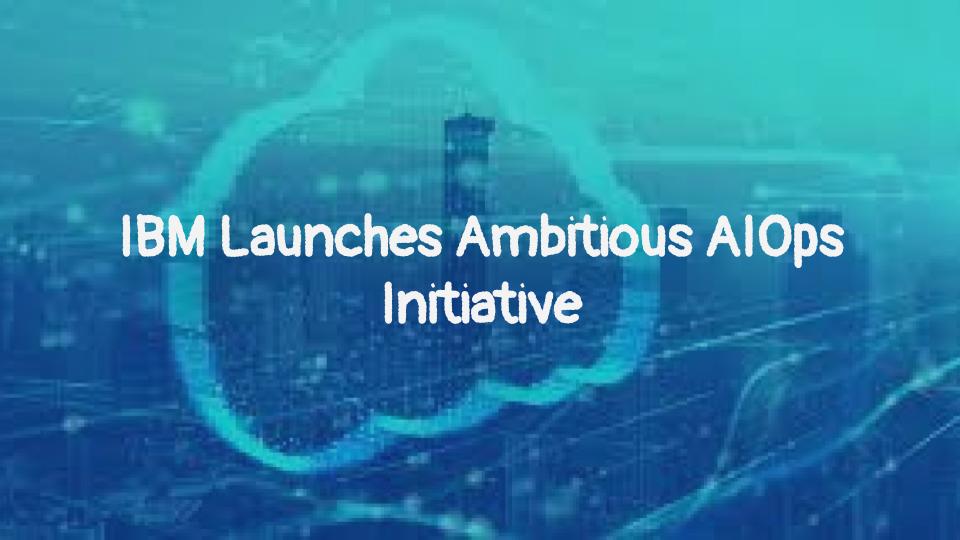
IBM announced it will apply a range of artificial intelligence (AI) technologies to automate the management of IT operations and modernize applications, also known as AIOps.
Announced at IBM’s Think Digital conference, Watson AIOps leverages algorithms to continuously optimize IT operations while Accelerator for Application Modernization with AI is a suite of tools that leverage continuous learning and interpretable AI models to help organizations stay current as modern of technology and platforms evolve.
Made available as part of a Cloud Modernization Service engagement, the Application Modernization with AI toolsspan a range of tasks from applying AI to more accurately identifying software components that should be deployed as containers or converted into microservices to applying symbolic reasoning to dynamically define modernization steps that are surfaced via a natural language processing (NLP) engine.
Watson AIOps, meanwhile, applies machine and deep learning algorithms to time series data, semi-structured logs, structured data and unstructured data spanning both IT incidents and human conversations to track the timeline of an issue. It then uses that data to correlate root causes, create an explainable diagnosis, and generate a recommendation for the best course of action. Built on top of an instance of the OpenShift platform that IBM gained via its acquisition of Red Hat, the Watson AIOps also leverages semantic search techniques that can relate the current incident to past incidents to provide additional context.
Rob Thomas, senior vice president for IBM Cloud and Data Platform, said Watson AIOps will be made accessible via Slack and comes integrated with Box cloud services. It also is integrated with IT monitoring solutions from vendors including Mattermost and ServiceNow. IBM is applying multiple AI technologies developed by IBM Research for various Watson services provided by IBM, including a Watson OpenScale initiative to make AI explainable to create Watson AIOps, he said.
That explainability capability is especially critical when it comes to automating IT operations. In general, the main source of resistance to AIOps is a lack of transparency into how algorithms are determining how any given task should be automated. IT teams are concerned not only with whether they can roll back automation for a specific task but also about becoming locked into a specific AIOps platform.
It is too early to say to what degree IT organizations will embrace AIOps. There is no doubt that in the wake of the COVID-19 pandemic there will be more pressure than ever to automate, especially among organizations that have had to downsize their IT staff. However, IT automation manifests itself in many forms, not all of which employ machine and deep learning algorithms. At the same time, AI is being infused into every existing IT management tool, so it’s not clear to what degree a dedicated AIOps platform will be required.
No one expects AI to eliminate the need for IT staff anytime soon. Algorithms, at best, can only augment IT, professionals. The challenge now is defining precisely where that human-to-machine interface should optimally be applied.
Disclaimer- This article was originally published on devops.com
BDCC
Latest posts by BDCC (see all)
- Cloud computing in healthcare: Uses and benefits - June 23, 2025
- What are the Best Practices for Terraform File Structure? - June 10, 2025
- From Monolith to Microservices: DevOps Strategies For a Smooth Transition - June 5, 2025

